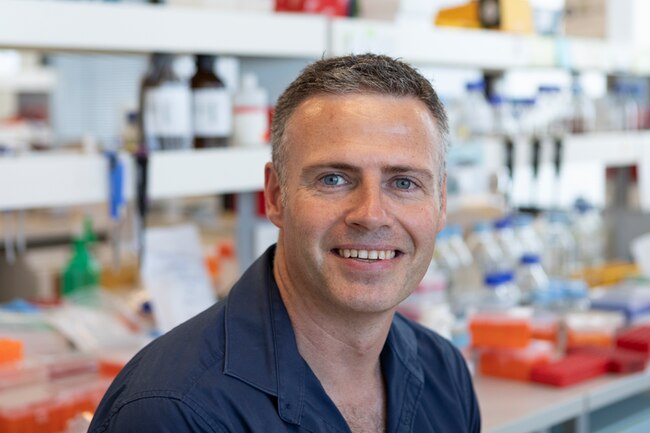White blood cell hope for cancer treatments
New research could lead to new immunotherapies for cancer or vaccines for infectious diseases like strep A and tuberculosis.

Australian scientists have discovered the origin of a specialised white blood cell that protects against infection and disease, and could lead to new immunotherapies for cancer or vaccines for infectious diseases such as strep A, tuberculosis and Covid.
Murdoch Children’s Research Institute and Federation University Australia researchers showed for the first time “gamma delta T cells” were formed in a three-stage process in the thymus gland, a small organ close to the heart.
The immune cells then enter the rest of the body to fight serious infections.
Previously, scientists believed these cells were mainly derived from the liver during a baby’s development in the womb – a theory that has now been debunked.
“Knowing this information about how these cells develop allows us to boost their numbers, which could make them more advantageous to combating infections through vaccines and cancer immunotherapies,” said Daniel Pellicci, the leader of Cellular Immunology at the Murdoch Children’s Research Institute.
These cells play a role in cancer by identifying a cell that is infected or cancerous in the body and killing it.
“There’s no vaccine for strep A at the moment, and we really need a vaccine to bring numbers down,” Associate Professor Pellicci said.

“Tuberculosis kills more than one million people a year but the vaccine is still not doing its job. If we had a vaccine that targeted gamma delta T cells, we could boost the immune response to tuberculosis, an infection which primarily impacts low- and middle-income families.”
Associate Professor Pellicci said he found it “unacceptable” that there weren’t adequate vaccines for these infectious diseases.
“We came up with Covid vaccine in 12 months,” he said.
“When you compare that to strep A and tuberculosis, which we’ve had for hundreds and hundreds of years and we still don’t have good enough vaccines to beat these infectious diseases.”
New vaccines would work by activating the gamma delta T cells and at the same time fighting the particular key component of the infectious disease.
The research, published in Science Immunology, used thymus tissue samples donated to the Melbourne Children’s Heart Tissue Bank from heart surgery patients up to 16 years old.




To join the conversation, please log in. Don't have an account? Register
Join the conversation, you are commenting as Logout